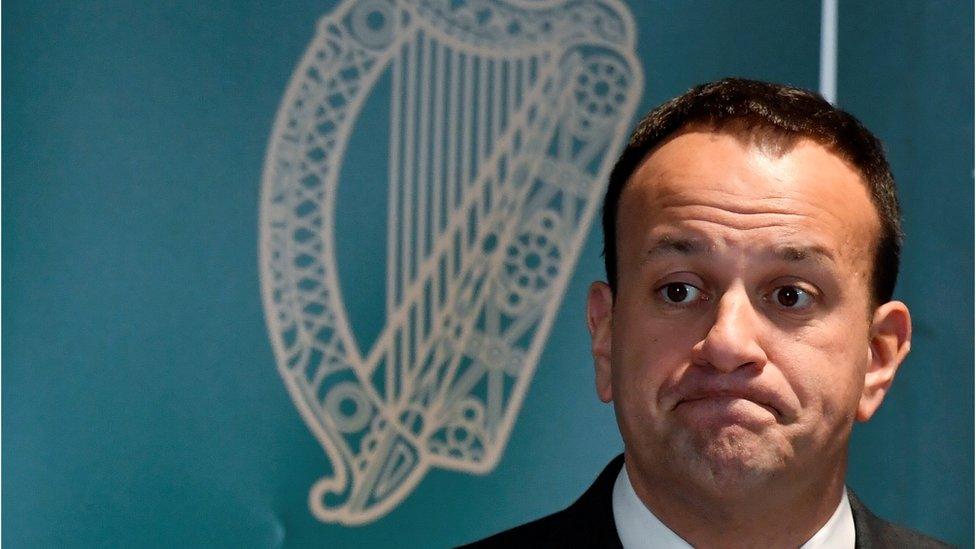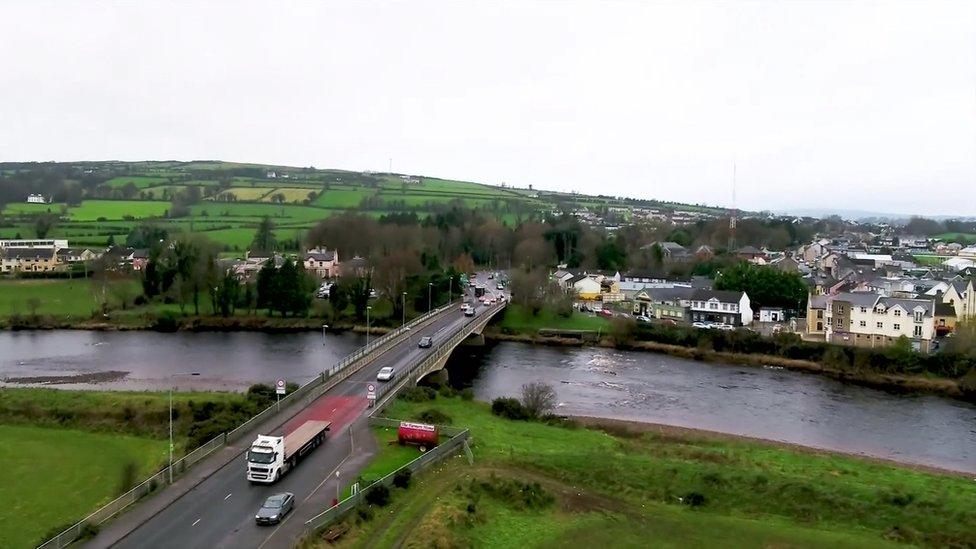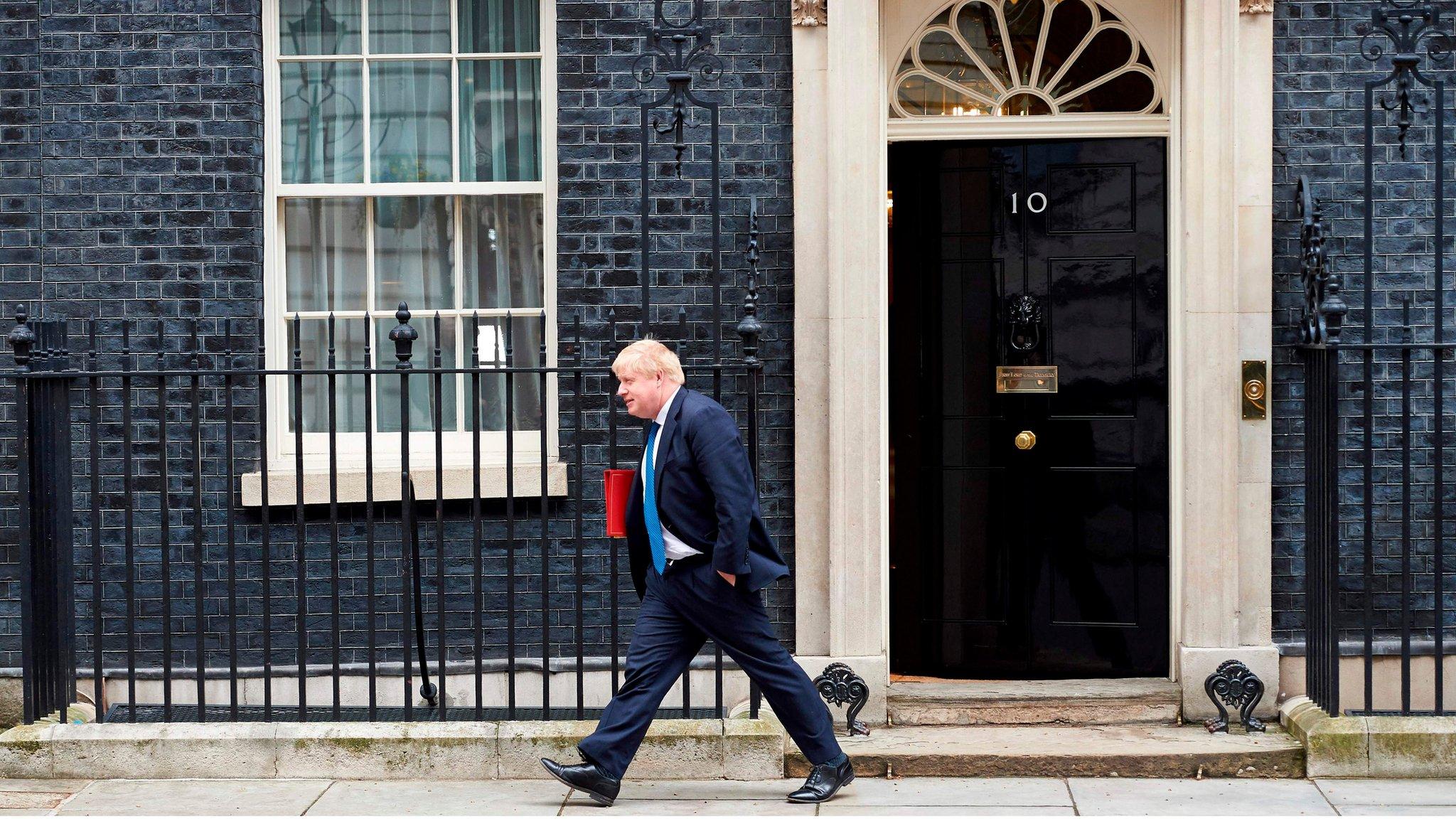Varadkar: 'We cannot accept alternative arrangements'
- Published

Irish PM Leo Varadkar was speaking at an EU summit
The Irish prime minister has said that "alternative arrangements" to maintain a soft border could not be in place by the Brexit deadline in October.
Alternative arrangements are ways of maintaining a soft border without regulatory alignment between the UK and the EU.
It is normally used to refer to technical or technological solutions.
Some Brexit supporters think these solutions could be used to replace the backstop.
Speaking at the end of an EU summit Leo Varadkar expressed scepticism.
"We can't accept that alternative arrangements are an alternative to a backstop unless we see what they are, know how they would work and see them demonstrated," he said.
"That hasn't been done yet and I don't see that being done this side of October 31, which is why we certainly can't accept the deletion of the backstop."
Alternative arrangements
Earlier this week, the UK government appointed a panel of experts to advise on alternative arrangements.
The EU has also committed to exploring alternative arrangements, but only once a Withdrawal Agreement containing the backstop is passed.
The British government and the EU have agreed there should be no hardening of the Irish border after Brexit.
BBC News NI's political reporter Jayne McCormack explains why the border is an issue
However, that will be difficult if the UK sticks to its red lines of leaving both the Customs Union and the Single Market.
For countries outside those arrangements, the EU normally imposes a range of border checks to enforce customs and product standards.
Some Brexit supporters believe they can square the circle of an open border and a loose relationship with the EU by using technology and other techniques to manage the border.
However Mr Varadkar said he still believe that some form of regulatory alignment will be needed.
"The only way that I can see that we can be sure we avoid a hard border is through regulatory alignment," he said.
"That's why the British government agreed to that in the joint report back in December 2017, because we all understood at the time that the best and most effective way to avoid the need for infrastructure or check or controls was regulatory alignment.
"That's still where I think we have to end up."
- Published20 June 2019

- Published23 July 2019

